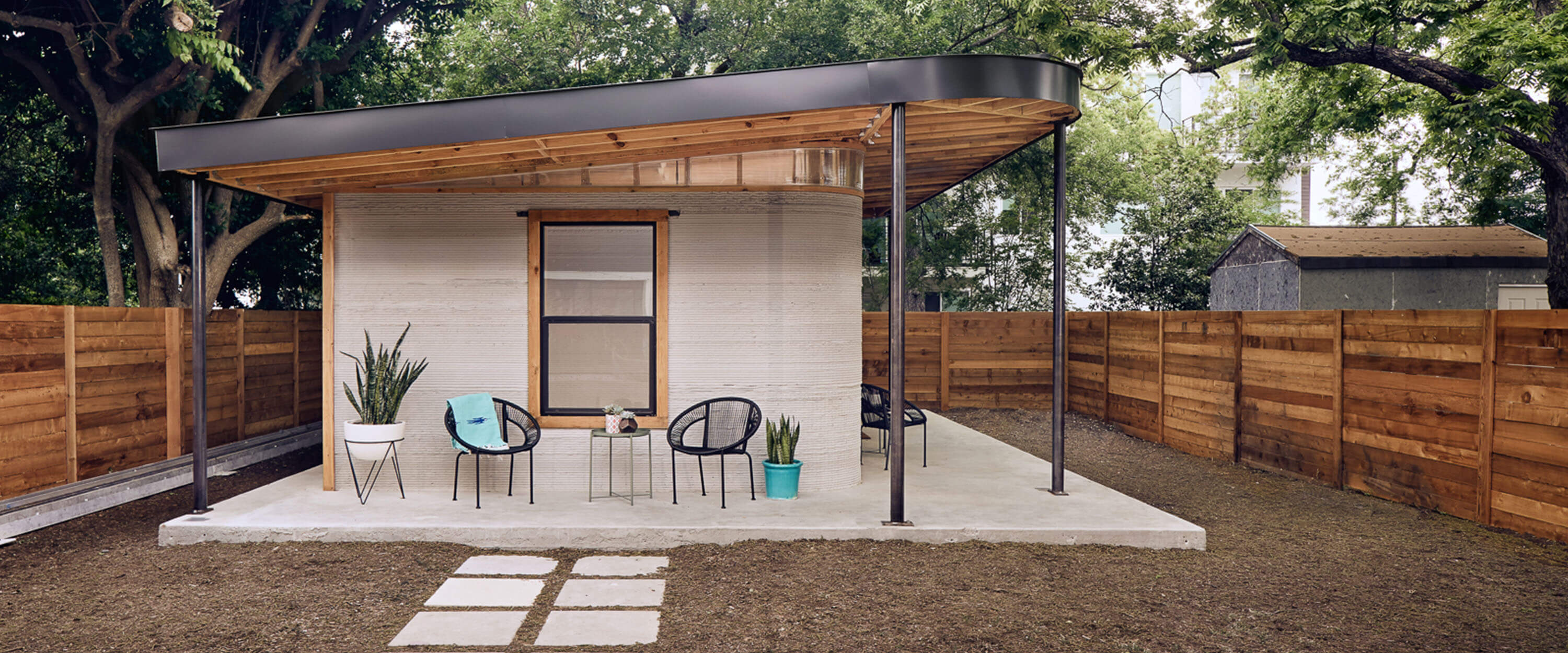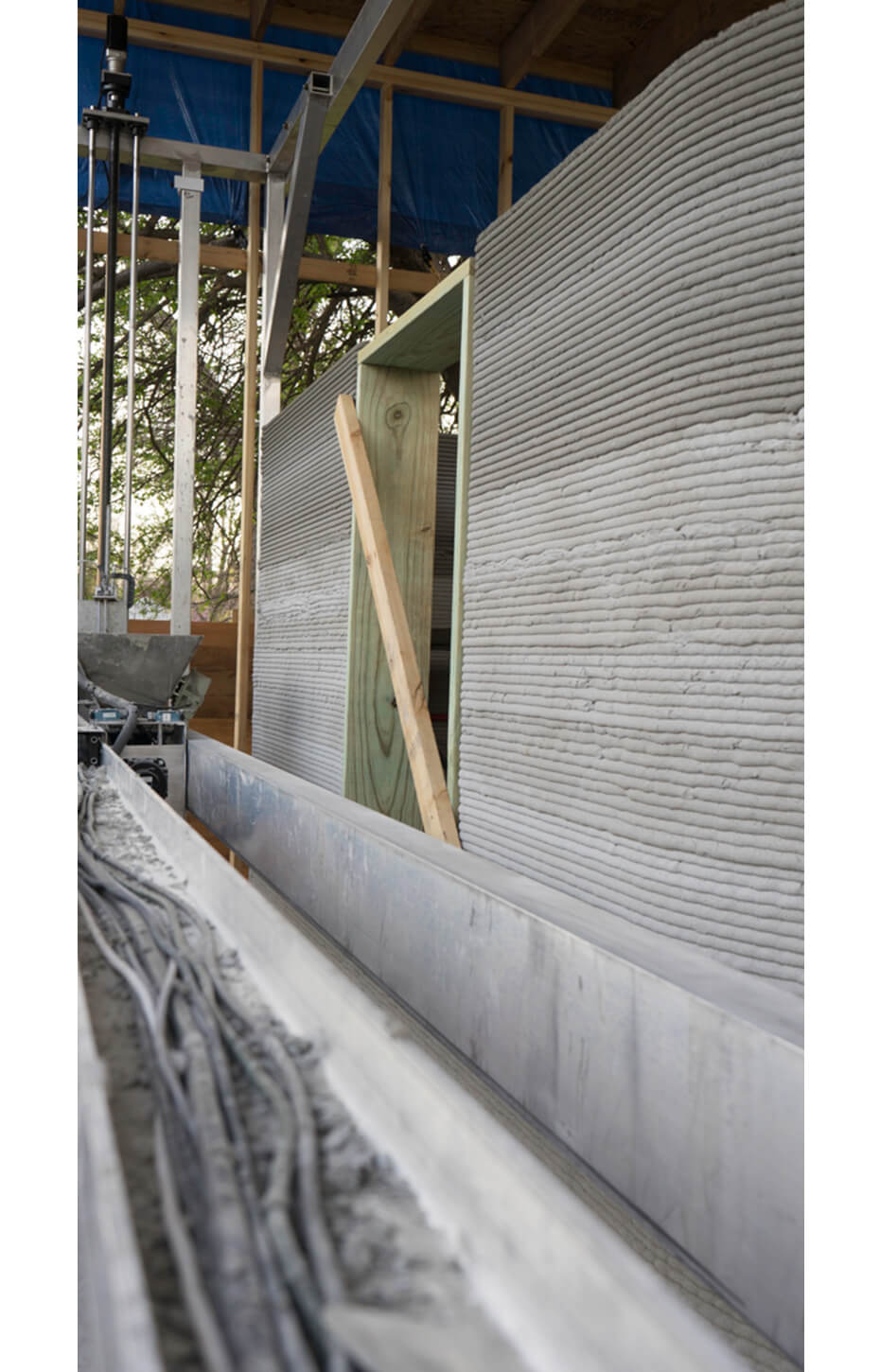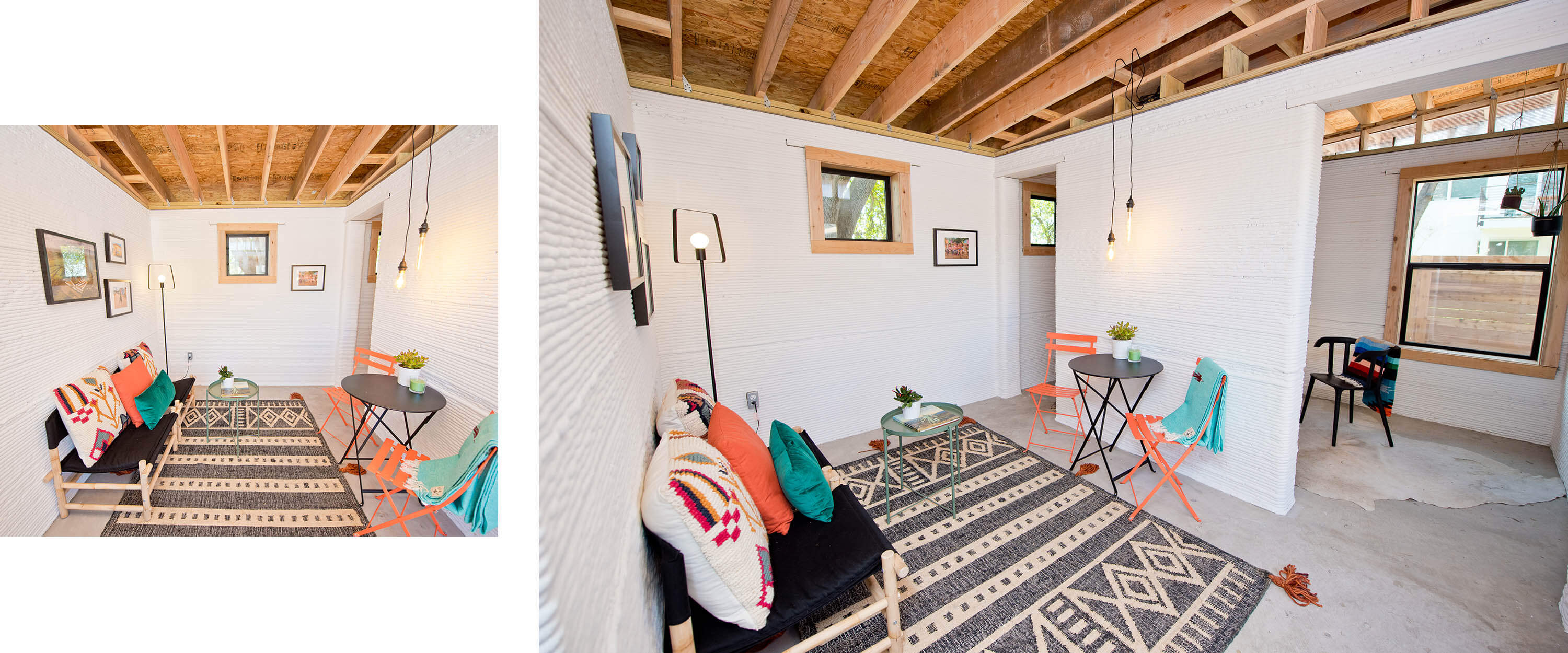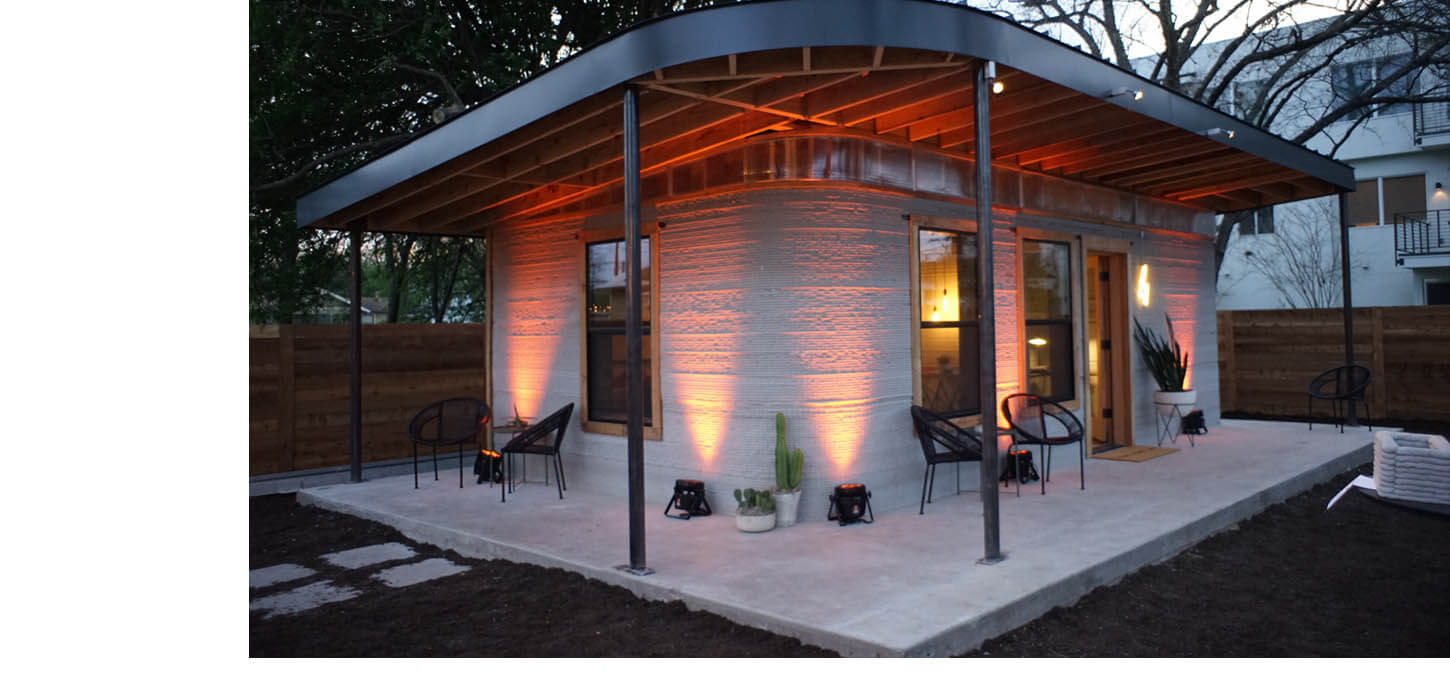BUILDING A BETTER WORLD ONE LAYER AT A TIME
HOME SWEET 3D PRINTED HOME
But it isn’t all about creating a home for less. These 3D printed homes can be personalized and designed in ways never before possible. So, they aren’t just more attainable: They can provide a level of design aesthetic equal to some of the most expensive handcrafted homes. Before we get into some of the current pioneers of this technology, it might help to know more history on 3D printed housing.
These 3D printed
homes can be
personalized and
designed in ways
never before
possible.


We need to go all the way back to the 1950s to explore the initial seeding of the technology. It was then that the first concept of a robotic bricklayer began to surface. Of course, at the time, the vision far outweighed the tools of the time. Development of automated fabrication of entire buildings using slip-forming techniques and robotic assembly of components, akin to 3D printing, were pioneered in Japan to 1980s and 1990s. It sped up the construction process but didn’t provide the freedom of design that many desired.
Fast forward several decades, and technology finally caught up with engineering visions. The first inhabitable 3D printed home was erected in Nantes, France, in April 2018. The University of Nantes and the Nantes Digital Sciences Laboratory developed the five-bedroom home, and a machine called the Batiprint3D built its frame in 18 days. It ushered in the maturity of the technology – and a race to commercialize it around the world.
WHY THE RISE OF 3D PRINTED HOMES NOW?
Shelter is one of the most basic human needs, yet according to the United Nations, over one billion people worldwide live in sub-standard housing. Think of ramshackle homes fortified with scrap metal and founded on unfinished or dirt flooring.
It’s a serious and growing problem – and one that traditional construction methods are not equipped to handle. Luckily, a few forward-thinking companies are turning to 3D printing to help alleviate this housing crisis. And one in particular has a very ambitious goal.

Shelter is one of the
most basic human
needs, yet according
to the United Nations, over one
billion people
worldwide live in
sub-standard housing.
New Story, a nonprofit based in San Francisco, aims to use this transformative technology to build entire communities of 3D printed dwellings that are not only aesthetically pleasing but extremely affordable. It plans on working with each community directly to incorporate as many of their needs as possible.
Because the housing is built using software, it’s possible to offer options for different designs, depending on family size. Starting off big, they plan on building an entire community of 3D printed homes in Latin America in 2019. If that sounds ambitious, just consider the nonprofit’s resume. It has built over 850 traditionally constructed homes in Bolivia, El Salvador, and Haiti. On top of that, it has funded over 1,400 worldwide. It’s safe to say it has the right background for this project. But it had one big hurdle to overcome. While New Story had the willpower to get it done, it still needed the engineering might.
A PARTNERSHIP BASED ON A SHARED PASSION
ICON, the engineering minds behind an ingenious 3D printer that builds the walls of a house one concrete layer at a time, turned out to be the perfect partner. New Story says of ICON, “A year ago, the technology we needed didn’t exist. That’s when we began working with ICON to create a solution to a seemingly unsolvable problem.” The exciting result? The Vulcan, a 3D printer designed to print a home for less than $4,000 in less than 24 hours.
And it’s clear from what Jason Ballard, co-founder and CEO of ICON, has to say that these two partners are on the same page. “It’s our mission at ICON to re-imagine the approach to homebuilding and construction and make affordable, dignified housing available to everyone throughout the world.”
It’s that kind of shared mindset, combined with the drive and ambition of both New Story and ICON, that is propelling the project in Latin America forward – and potentially many more to come.

Assuming its first large-scale 3D printing project goes as planned, New Story aims to fully shift to 3D printing. The team envisions plotting routes to bring the printers from community to community in countries around the world. It’s also open to sharing the technology with others as a way of speeding up the process.
Who knows? With the rapid advancement of this technology, there’s a good chance you may one day soon sit down with an architect, design your dream home on a computer, and move into it the very next day.